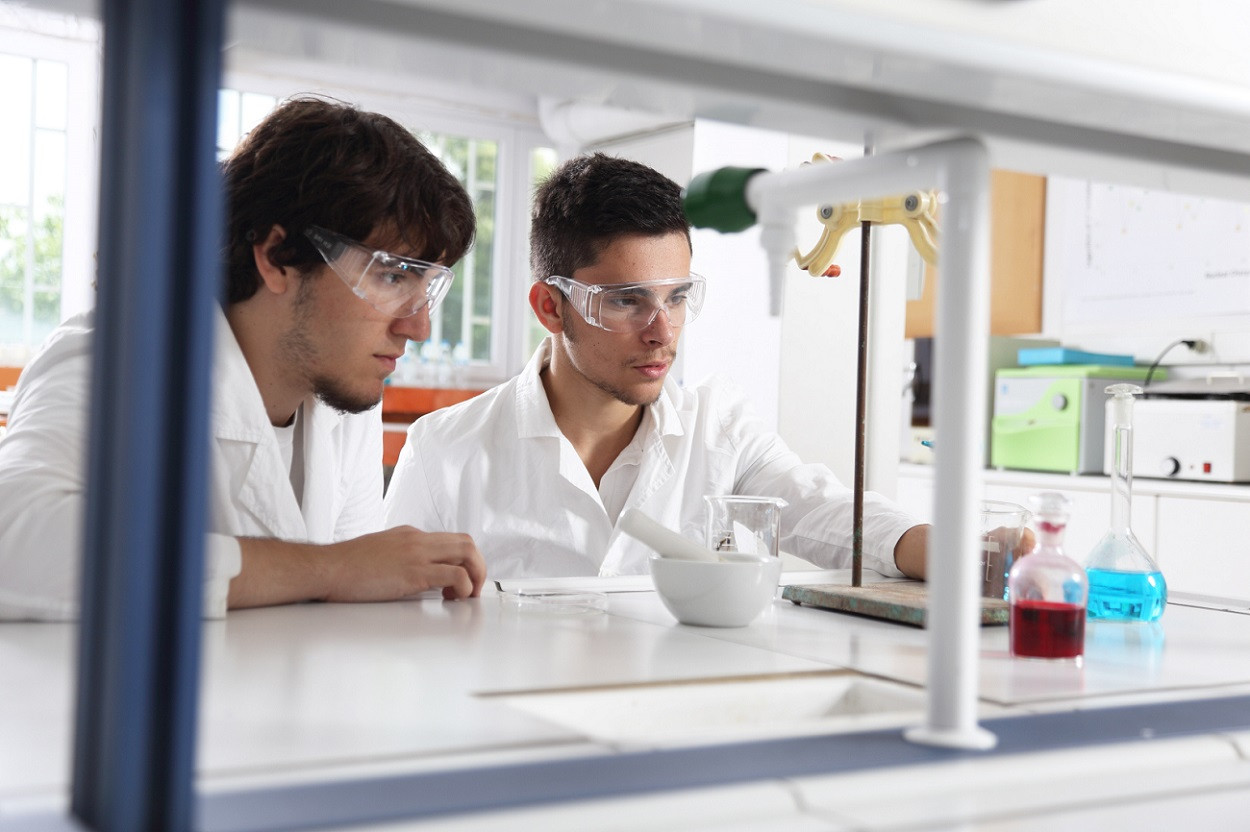Course description
The course consists of a core foundation of essential notions in chemistry, including quantitative chemistry, atomic structure and the periodic table, bonding theory, chemical kinetics, energetics and equilibria, theories of acids and bases and redox chemistry and introductory organic chemistry and instrumental analysis. In many instances these topics are illustrated with examples drawn from environmental, industrial, medicinal and biological chemistry.
The theory is illustrated with a wide range of experimental work designed to train students in a variety of core chemistry laboratory skills as well as proper experimental design, data collection and processing.
In the first year the course is conducted at the DP High Level, with differentiation starting in the second term of the second year.
ATL Skills
The five approaches to learning (developing thinking skills, social skills, communication skills, self-management skills and research skills) along with the six approaches to teaching (teaching that is inquiry-based, conceptually focused, contextualized, collaborative, differentiated and informed by assessment) encompass the key values and principles that underpin IB pedagogy. [2014 IBDP Chemistry subject guide, p.4]
Group 4 Aims
Through studying biology, chemistry or physics, students should become aware of how scientists work and communicate with each other. While the scientific method may take on a wide variety of forms, it is the emphasis on a practical approach through experimental work that characterizes these subjects. The aims enable students, through the overarching theme of the Nature of science, to:
1. appreciate scientific study and creativity within a global context through stimulating and challenging opportunities
2. acquire a body of knowledge, methods and techniques that characterize science and technology
3. apply and use a body of knowledge, methods and techniques that characterize science and technology
4. develop an ability to analyse, evaluate and synthesize scientific information
5. develop a critical awareness of the need for, and the value of, effective collaboration and communication during scientific activities
6. develop experimental and investigative scientific skills including the use of current technologies
7. develop and apply 21st-century communication skills in the study of science
8. become critically aware, as global citizens, of the ethical implications of using science and technology
9. develop an appreciation of the possibilities and limitations of science and technology
10. develop an understanding of the relationships between scientific disciplines and their influence on other areas of knowledge.
Syllabus Outline:
|
Syllabus component |
Recommended teaching hours |
|
|
|
SL /HL |
|
|
Core
|
95 |
|
|
Additional higher level (AHL) |
HL 60 |
|
|
2 |
|
|
Option |
SL 15 |
HL 25 |
|
A. Materials |
15 |
25 |
Assessment Objectives
The assessment objectives for biology, chemistry and physics reflect those parts of the aims that will be
formally assessed either internally or externally. These assessments will center upon the nature of science.
It is the intention of these courses that students are able to fulfill the following assessment objectives:
1. Demonstrate knowledge and understanding of:
a. facts, concepts and terminology
b. methodologies and techniques
c. communicating scientific information.
2. Apply:
a. facts, concepts and terminology
b. methodologies and techniques
c. methods of communicating scientific information.
3. Formulate, analyse and evaluate:
a. hypotheses, research questions and predictions
b. methodologies and techniques
c. primary and secondary data
d. scientific explanations.
4. Demonstrate the appropriate research, experimental, and personal skills necessary to carry out insightful and ethical investigations.
Assessment outline—SL
(First assessment 2016)
|
Component |
Content |
Overall weighting (%) |
Duration (hours) |
|
|
Paper 1 |
Multiple-choice questions (CORE) |
20 |
¾ |
|
|
Paper 2 |
Short questions (CORE) |
40 |
1¼ |
|
|
Paper 3 |
Data analysis + Option
|
20 |
1 |
|
|
Internal assessment |
Individual investigation |
20 |
10 |
|
Assessment outline—HL
First assessment 2016
|
Component |
Content |
Overall weighting (%) |
Duration (hours) |
|
Paper 1 |
Multiple-choice questions (CORE)
|
20 |
1 |
|
Paper 2 |
Short questions (CORE)
|
36 |
2¼ |
|
Paper 3 |
Data analysis + Option
|
24 |
1¼ |
|
Internal assessment |
Individual investigation |
20 |
10 |
